YWCA
Young Women’s Christian Association
The Richmond Young Women’s Christian Association is a branch of the YWCA of the United States of America. Nationally, the agency values their roots in the Christian faith as a platform for supporting women and combatting racism. Locally, Richmond’s YWCA also follows these same values. The YWCA has been in Richmond since 1887, founded by women coming into the city from rural areas in pursuit of factory work.
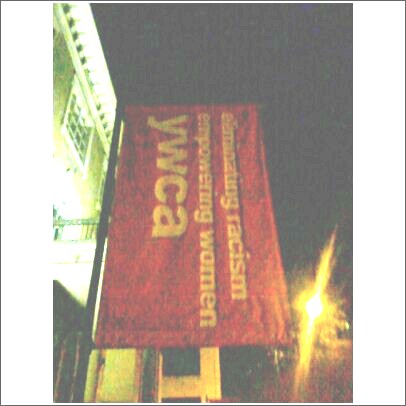 Richmond’s YWCA targets facilitating resources to women, children, and families of all races and income levels. The Richmond YWCA provides many services to women and children, including two twenty-four hour crisis hotlines, two confidential emergency shelters, individual short- term counseling, support groups, hospital accompaniment for sexual assault victims, court appointment, public education, and a children’s center. YWCA is a nonprofit organization and receives federal and local government financial support, as well as private donations from individuals and organizations. In addition to financial contributions, donations consist of volunteer work, clothes, and household items.
Richmond’s YWCA targets facilitating resources to women, children, and families of all races and income levels. The Richmond YWCA provides many services to women and children, including two twenty-four hour crisis hotlines, two confidential emergency shelters, individual short- term counseling, support groups, hospital accompaniment for sexual assault victims, court appointment, public education, and a children’s center. YWCA is a nonprofit organization and receives federal and local government financial support, as well as private donations from individuals and organizations. In addition to financial contributions, donations consist of volunteer work, clothes, and household items.
YWCA claims that its services offer a comprehensive approach to helping women, children, and families challenged with domestic violence and sexual assault. Two twenty- four hour a day hotlines are maintained, one in Richmond and one in Chesterfield. Referrals to services that are needed immediately can be attained by calling the hotline. Richmond’s YWCA also runs two confidential emergency shelters. One is located in Richmond and the other in Chesterfield. Each house services twenty women and children who are victims of sexual assault or domestic abuse. The shelters provide individual and group counseling, case management services, and employment and legal assistance. The YWCA also offers individual counseling for men and women who are victims of sexual assault or domestic abuse. This three month program is offered at seven sites in and around Richmond. Various support groups are also held by YWCA counselors in many locations throughout the city. The YWCA provides staff and volunteers twenty-four hours a day to meet sexual assault victims at local hospitals if they desire the emotional support, information, and referrals. YWCA volunteer legal advocates are also available to accompany victims to court providing emotional support and guidance. Through all these services, YWCA aims to educate the greater public about sexual assault and domestic abuse.
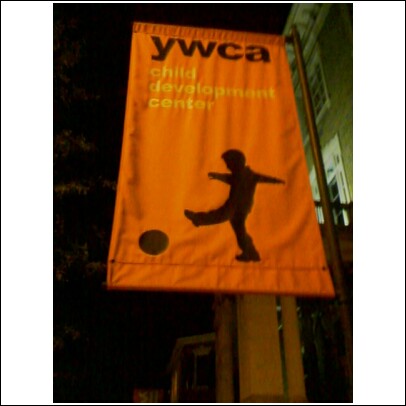 The YWCA also has a Children’s Center in downtown Richmond that focuses on childrens’ social development. Free services here are only offered to homeless or those living in shelters. Fees charged for programs are based on family income. The YWCA’s Children’s Center is licensed by the Virginia Department of Social Services. An after-school program and summer program is offered to children ages five to twelve. Pre-School and Head Start are offered to children ages three to five. Services provided to homeless children may also include comprehensive medical assistance.
The YWCA also has a Children’s Center in downtown Richmond that focuses on childrens’ social development. Free services here are only offered to homeless or those living in shelters. Fees charged for programs are based on family income. The YWCA’s Children’s Center is licensed by the Virginia Department of Social Services. An after-school program and summer program is offered to children ages five to twelve. Pre-School and Head Start are offered to children ages three to five. Services provided to homeless children may also include comprehensive medical assistance.
Although the YWCA does not affiliate itself with any branch of the Christian faith, the YWCA claims to use the most basic Christian values to structure its programs. Being accepting of everyone in need of resources, regardless of race or income grows out of the YWCA’s Christian roots. The YWCA, however, does not
intend to impose Christianity on any of its clients, but rather uses Christian values as an approach for being able to provide the most effective services.
YWCA
6 North 5th Street
Richmond, VA 23219
(804) 643-6761
Profile By: Kristen Smith
September, 2007

 United Methodist Family Services is a non-profit human services organization. While it is legally separate from The Virginia Annual Conference of the United Methodist Church and is administered by an independent board of directors, the two have a long history together. John Wesley, the founder of Methodism, emphasized social justice in his ministry, and United Methodist Family Services reflects this heritage. The organization espouses a holistic approach, which focuses on the intellectual, physical, psychological, emotional, and spiritual aspects of every client they serve. United Methodist Family Services serves not only Methodists but also individuals and families of all cultures, races, and religions. In fact, most clients of United Methodist Family Services are not affiliated with the United Methodist church.
United Methodist Family Services is a non-profit human services organization. While it is legally separate from The Virginia Annual Conference of the United Methodist Church and is administered by an independent board of directors, the two have a long history together. John Wesley, the founder of Methodism, emphasized social justice in his ministry, and United Methodist Family Services reflects this heritage. The organization espouses a holistic approach, which focuses on the intellectual, physical, psychological, emotional, and spiritual aspects of every client they serve. United Methodist Family Services serves not only Methodists but also individuals and families of all cultures, races, and religions. In fact, most clients of United Methodist Family Services are not affiliated with the United Methodist church. United Methodist Family Services provides a wide range of adoption services. In facilitating adoption between birth parent and adoptive parent, counseling to the birth parent, post-placement services for the adoptive parent, finalization, and continued support from the organization’s Adoptive Family Preservation are provided. Special needs adoptions include a home study, family match, and a nine-week pre-service training followed by post-placement services, finalization, and continued support from the organization’s Adoptive Family Preservation. International adoption services include a home study, pre-adoptive education about children and international adoption issues, resources and referrals, post-placement services, and continued support from the organization’s Adoptive Family Preservation.
United Methodist Family Services provides a wide range of adoption services. In facilitating adoption between birth parent and adoptive parent, counseling to the birth parent, post-placement services for the adoptive parent, finalization, and continued support from the organization’s Adoptive Family Preservation are provided. Special needs adoptions include a home study, family match, and a nine-week pre-service training followed by post-placement services, finalization, and continued support from the organization’s Adoptive Family Preservation. International adoption services include a home study, pre-adoptive education about children and international adoption issues, resources and referrals, post-placement services, and continued support from the organization’s Adoptive Family Preservation.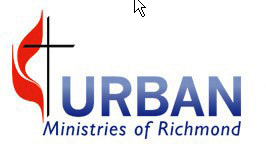 changing the community by providing educational and financial support to those who are in need in the Richmond area. The Community of Shalom Program was created by General Conference of the United Methodist Church, and the original Community of Shalom was formed in 1992 in Los Angeles. The program has now spread throughout the United States and around the world. Shalom (a Hebrew word meaning peace) program has been conducting training for Communities of Shalom by holding more than forty annual conferences in the U.S. and Southern and West Africa. The General Board of Global Ministries is the global organization of The United Methodist Church. “Global Ministries seeks, on behalf of The United Methodist Church, to embody the Christian and Wesleyan conviction that all of life is within the promise of the saving, judging reign of God”.
changing the community by providing educational and financial support to those who are in need in the Richmond area. The Community of Shalom Program was created by General Conference of the United Methodist Church, and the original Community of Shalom was formed in 1992 in Los Angeles. The program has now spread throughout the United States and around the world. Shalom (a Hebrew word meaning peace) program has been conducting training for Communities of Shalom by holding more than forty annual conferences in the U.S. and Southern and West Africa. The General Board of Global Ministries is the global organization of The United Methodist Church. “Global Ministries seeks, on behalf of The United Methodist Church, to embody the Christian and Wesleyan conviction that all of life is within the promise of the saving, judging reign of God”.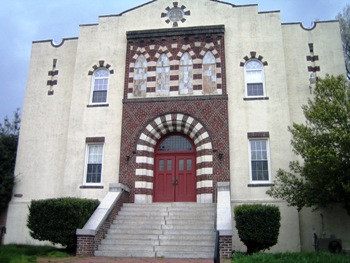 The administrative Director of the Global Ministries and the district coordinators of the Communities of Shalom visualized taking this practice to another level by forming a City of Shalom that would link Communities of Shalom. In order to make this linkage, the Council for Creative Urban Ministry was formed. The committee meets once a month to work toward its goal. During the meeting hours the committee discusses how to arrange for providing education and daily necessities that help the community. The goal of this organization is to successfully enhance larger communities.
The administrative Director of the Global Ministries and the district coordinators of the Communities of Shalom visualized taking this practice to another level by forming a City of Shalom that would link Communities of Shalom. In order to make this linkage, the Council for Creative Urban Ministry was formed. The committee meets once a month to work toward its goal. During the meeting hours the committee discusses how to arrange for providing education and daily necessities that help the community. The goal of this organization is to successfully enhance larger communities.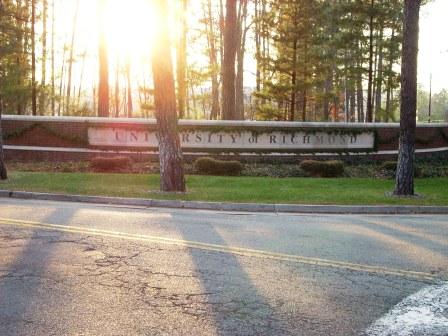 In 1992, the University of Richmond hosted a first-ever televised “town hall” style debate between presidential candidates George Bush, Bill Clinton, and Ross Perot. The university boasts a ratio of nine students to each faculty member, an average class size of 18 students, and 56 majors to choose from. The University of Richmond also hosts 18 campus ministries, representing six world religions.
In 1992, the University of Richmond hosted a first-ever televised “town hall” style debate between presidential candidates George Bush, Bill Clinton, and Ross Perot. The university boasts a ratio of nine students to each faculty member, an average class size of 18 students, and 56 majors to choose from. The University of Richmond also hosts 18 campus ministries, representing six world religions.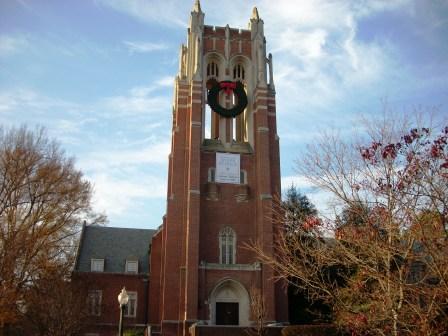
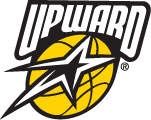 In order to inculcate values of sportsmanship and inclusiveness, Upward carefully structures sports activities. Children are assigned to teams based on each individual’s skill level. Participation on each team is rotated for each position so that everyone enjoys a full sports experience and equal playing time. The coaches and referees have been trained specifically for these religious games. Referees must be treated with respect. There is a half-time religious devotion at practices where the coach speaks to the team about biblical and scriptural values and how they should be implemented in life, and specifically while playing a sport. A worksheet is handed out and a Bible verse is reviewed. There is a similar activity at games during halftime. Someone from the church witnesses and discusses Christ’s love with the children and all of the people in attendance.
In order to inculcate values of sportsmanship and inclusiveness, Upward carefully structures sports activities. Children are assigned to teams based on each individual’s skill level. Participation on each team is rotated for each position so that everyone enjoys a full sports experience and equal playing time. The coaches and referees have been trained specifically for these religious games. Referees must be treated with respect. There is a half-time religious devotion at practices where the coach speaks to the team about biblical and scriptural values and how they should be implemented in life, and specifically while playing a sport. A worksheet is handed out and a Bible verse is reviewed. There is a similar activity at games during halftime. Someone from the church witnesses and discusses Christ’s love with the children and all of the people in attendance.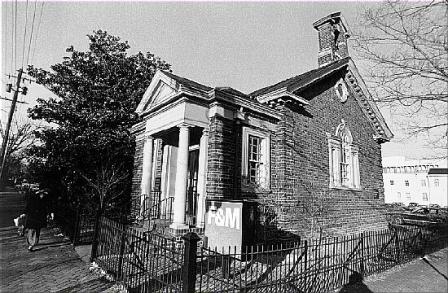 In 1906, the First Unitarian Church of Richmond built a small, colonial, revival-style church on land purchased at Harrison and Floyd Streets. Three bells dedicated to the memory of Thomas Jefferson were hung in the belfry of the church in 1926. The church at Harrison and Floyd had a number of ministers, including one of the longest-serving, John Makennon, who ministered during the 1930s and 1940s. During the 1950s and 1960s, the First Unitarian Church was one of Richmond ‘s most progressive congregations and an outspoken critic of segregation. The church voted to officially integrate in 1951, and, ten years later, Joseph Jenkins was elected as its first black president. By the early 1970s, the small church at Harrison and Floyd was too small for its increasing number of members and a new church building was built in Byrd Park . The First Unitarian Church moved to the new church in 1972 and sold the building they had worshiped in for nearly seventy years.
In 1906, the First Unitarian Church of Richmond built a small, colonial, revival-style church on land purchased at Harrison and Floyd Streets. Three bells dedicated to the memory of Thomas Jefferson were hung in the belfry of the church in 1926. The church at Harrison and Floyd had a number of ministers, including one of the longest-serving, John Makennon, who ministered during the 1930s and 1940s. During the 1950s and 1960s, the First Unitarian Church was one of Richmond ‘s most progressive congregations and an outspoken critic of segregation. The church voted to officially integrate in 1951, and, ten years later, Joseph Jenkins was elected as its first black president. By the early 1970s, the small church at Harrison and Floyd was too small for its increasing number of members and a new church building was built in Byrd Park . The First Unitarian Church moved to the new church in 1972 and sold the building they had worshiped in for nearly seventy years.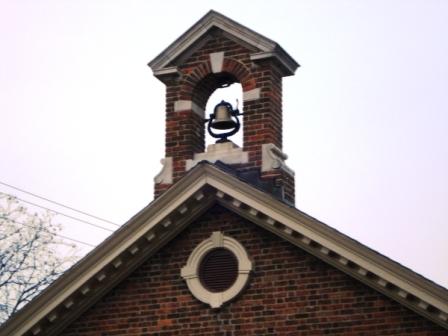 The next two decades would be filled rapid changes for the one-time church at 101 North Harrison . It’s second role would be as a branch of the First and Merchants Bank. This use lasted from 1973 until Virginia Commonwealth University bought the property in 1979. VCU was not entirely sure at first what to do with the newly-acquired building. It was first assigned as an Adult Learning Center in 1979 and then the Financial Aid Office in 1980. The building was subsequently left vacant between 1981 and 1982. It finally became the VCU Meeting Center in 1983. Its purpose then, as it is now, is to serve as a “Site for receptions, lectures, workshops, seminars and university and community meetings.” Today, the building retains the architectural qualities of a church, however, no religious artifacts remain to directly link the Meeting House to its past history as the First Unitarian Church . When the First Unitarian Church moved to Byrd Park , the congregation took the three bells dedicated in 1926 with them, so the ornamental bell that now hangs in the belfry was added after 1973.
The next two decades would be filled rapid changes for the one-time church at 101 North Harrison . It’s second role would be as a branch of the First and Merchants Bank. This use lasted from 1973 until Virginia Commonwealth University bought the property in 1979. VCU was not entirely sure at first what to do with the newly-acquired building. It was first assigned as an Adult Learning Center in 1979 and then the Financial Aid Office in 1980. The building was subsequently left vacant between 1981 and 1982. It finally became the VCU Meeting Center in 1983. Its purpose then, as it is now, is to serve as a “Site for receptions, lectures, workshops, seminars and university and community meetings.” Today, the building retains the architectural qualities of a church, however, no religious artifacts remain to directly link the Meeting House to its past history as the First Unitarian Church . When the First Unitarian Church moved to Byrd Park , the congregation took the three bells dedicated in 1926 with them, so the ornamental bell that now hangs in the belfry was added after 1973.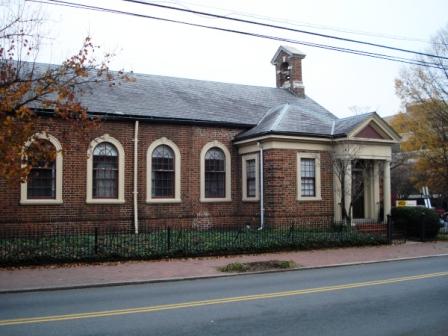
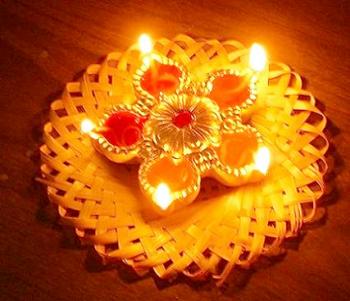 (Hinduism, Sikhism, Jainism, Buddhism) and is a national holiday. It is the largest and most widely celebrated of the Hindu festivals. The meanings attached to the festival vary by region. In one version the festival is celebrated on the date when Lord Rama came home after fourteen years of exile and victory over Ravana, the villagers put candles and lamps in their houses to light up the city in honor of his return. The tradition continues in a more contemporary form as people continue to display lights in their houses and set off firecrackers to commemorate Lord Rama’s return. They light small clay pots filled with coconut oil and a cotton wick, known as diyas. Diwali is a celebration of humanity’s true nature, the infinite, immanent, eternal reality (Atman) that transcends the mortal human being. Awakening devotees to this inner light brings out expression of love, compassion, unity with all of creation as well as a sense of joyfulness.
(Hinduism, Sikhism, Jainism, Buddhism) and is a national holiday. It is the largest and most widely celebrated of the Hindu festivals. The meanings attached to the festival vary by region. In one version the festival is celebrated on the date when Lord Rama came home after fourteen years of exile and victory over Ravana, the villagers put candles and lamps in their houses to light up the city in honor of his return. The tradition continues in a more contemporary form as people continue to display lights in their houses and set off firecrackers to commemorate Lord Rama’s return. They light small clay pots filled with coconut oil and a cotton wick, known as diyas. Diwali is a celebration of humanity’s true nature, the infinite, immanent, eternal reality (Atman) that transcends the mortal human being. Awakening devotees to this inner light brings out expression of love, compassion, unity with all of creation as well as a sense of joyfulness.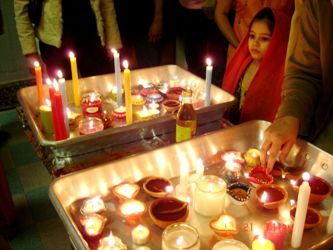 The festival spans five days festival that starts at the end of the month of Asvina and the beginning of the month of Kartika, usually between October and November. The first day is devoted to worship of the sacred cows and calves. The second day is regarded as very auspicious for shopping, particularly for gold, silver or utensils. The third day is a celebration of the day that Narkasur, an evil demon who had imprisoned sixteen thousand young princesses who he planned to marry, was slain by Lord Krishna. The day begins with ritual bathing before sunrise. The fourth and fifth days do not the same type of focus and significance as the previous three days.
The festival spans five days festival that starts at the end of the month of Asvina and the beginning of the month of Kartika, usually between October and November. The first day is devoted to worship of the sacred cows and calves. The second day is regarded as very auspicious for shopping, particularly for gold, silver or utensils. The third day is a celebration of the day that Narkasur, an evil demon who had imprisoned sixteen thousand young princesses who he planned to marry, was slain by Lord Krishna. The day begins with ritual bathing before sunrise. The fourth and fifth days do not the same type of focus and significance as the previous three days.